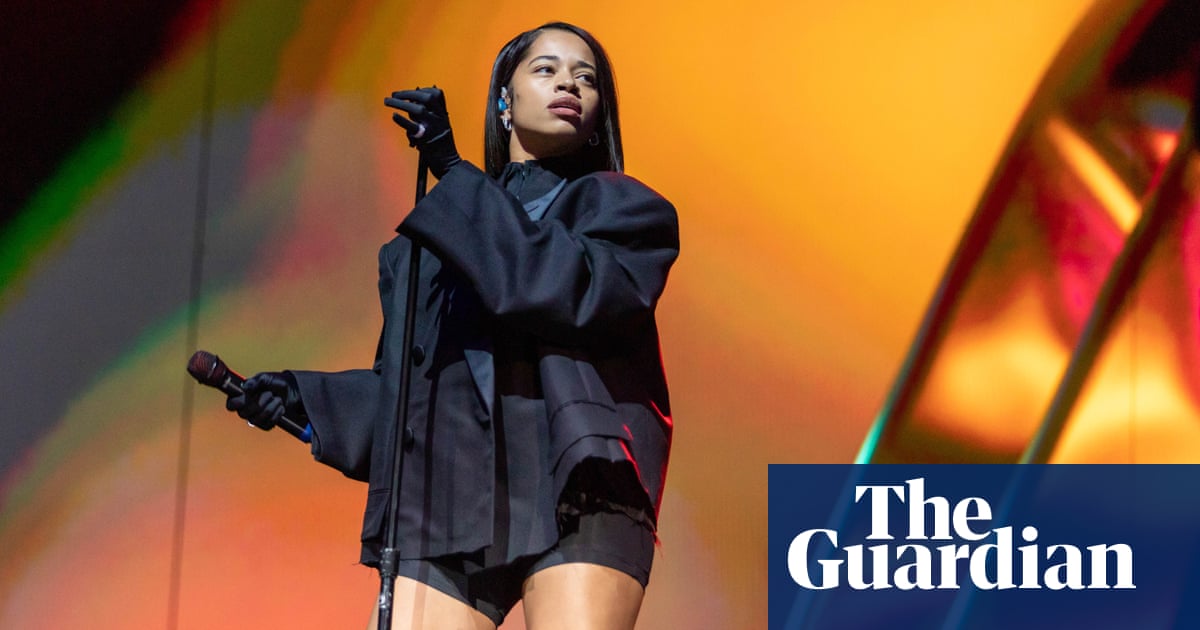
When people say that music can change the world, they don’t usually mean songs that capture with bright, sharp intimacy how girls feel.
They mean protest songs, political songs, anthems against the Vietnam war; not the soundtracks to aching teenage summers or to eight-year-olds’ dance routines in the playground. They don’t, in short, mean Taylor Swift songs. But that was what Malala Yousafzai, the Nobel peace prize-winning campaigner for women’s right to an education, used to sing with her friends growing up in Pakistan. Music, she posted on Instagram, after attending one of Swift’s London gigs this summer, “made me and my friends feel confident and free”. Which is why, in Afghanistan, the Taliban bans it.
This weekend, Swift was in Miami, starting the final leg of an Eras Tour that coincides neatly with the final leg of the most consequential US election in decades. Already an economic juggernaut, unleashing enough fan expenditure in its wake to have a measurable impact on local GDP wherever it rolls into town, the tour is increasingly a political vehicle, too.
On Friday night, Swift posted an Instagram reel, captioned “back to the office”, of herself exploring the stadium before the show, dressed in jeans and carrying her beloved cat – a pointed choice, given the Republican vice-presidential pick JD Vance’s dismissal of Kamala Harris as a childless cat lady.
The Democrats are piggybacking furiously on Swift’s endorsement of the Harris/Walz ticket to make a push for the younger voters they desperately need, with billboards around the stadium carrying ads proclaiming “I’m in my voting era”, and activists dishing out Kamala-themed friendship bracelets (trading bracelets is a Swiftie ritual).
No swing voter is swung by screaming along to Cruel Summer, but that’s not the point: this is a get-out-the-vote exercise. Her fanbase is young, mostly female, with a sizeable contingent of gay men, and thus liberal-leaning. The more of them she can motivate to actually vote in a highly gendered election, the worse for Donald Trump. Faintly surreal as it sounds, Swift has become a powerful rallying point for liberal resistance to “alt-right” misogyny in an election that has the free world holding its breath.
Taylor Swift isn’t just a pop star now. She is the convergence of celebrity with the kind of soft power – who else could get Yousafzai, two future kings and what feels like half the British cabinet to her London gigs? – that has acquired harder edges this summer.
For power like this has consequences. She had enraged the Maga movement long before formally endorsing Harris/Walz and praising their stance on abortion and LGBTQ+ rights. For months, she’s been the focus of increasingly deranged deep state conspiracy theories, suggesting she’s a front for some kind of fiendishly complex plot to rig the election that, like all conspiracy theories, is funny only until some lunatic believes it.
The office has not always been a comfortable place for Swift lately. In the middle of July, an American man who had allegedly made threats against her on social media was arrested in the German city of Gelsenkirchen on his way to her show, for which he had a ticket.
Less than a fortnight later, three little girls were stabbed to death at a Taylor Swift-themed dance workshop in the English town of Southport, in an attack whose motive remains unknown. (Swift met some of the survivors privately in London this summer.) In August, the singer cancelled three concerts in Vienna, after Austrian police disrupted a suspected Islamist terror plot to kill what they called “a huge number of people”. It was a grim echo of the 2017 bombing at an Ariana Grande gig in Manchester where 22 people died.
Frankly, I don’t blame her mother-turned-manager for getting spooked in London, and reportedly insisting on the kind of blue-light police escort between hotel and stadium normally reserved for heads of state. Nor do I think it was simply the lure of free gig tickets that prompted the home secretary, Yvette Cooper, and London mayor, Sadiq Khan, to take an interest in Swift’s protection and the viability of an event worth around £300m to the capital.
Still, the resulting deeply silly row allowed editors to run huge pictures of Swift in spangly knickers for days on end, only finally jumping the shark when Boris Johnson (of all people) used it to accuse Keir Starmer of looking corrupt.
Had the prime minister secretly hoped a bit of her stardust would rub off on him, when he was photographed at a Swift gig? Probably. Will he be trying that sort of thing again now? Almost certainly not. If Taylor Swift gets a peerage or a PPE contract, I’ll let you know. Sometimes, we seem like a very, very small island. Meanwhile, Swift is back at the office, temporarily boosting Florida’s GDP and trying to get a black woman elected as president.
When Time magazine chose the 34-year-old singer-songwriter as its Person of the Year in 2023, its profile suggested her power lay in giving women and girls “conditioned to accept dismissal, gaslighting, and mistreatment from a society that treats their emotions as inconsequential” permission to believe those feelings actually matter, through her songs. A year later, she is asking them to make their feelings matter through their votes. A gentle reminder that if music is to change the world, it’s never going to do so by itself.
Gaby Hinsliff is a Guardian columnist












